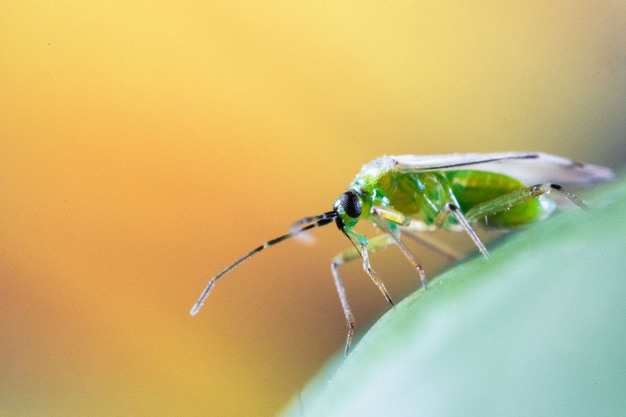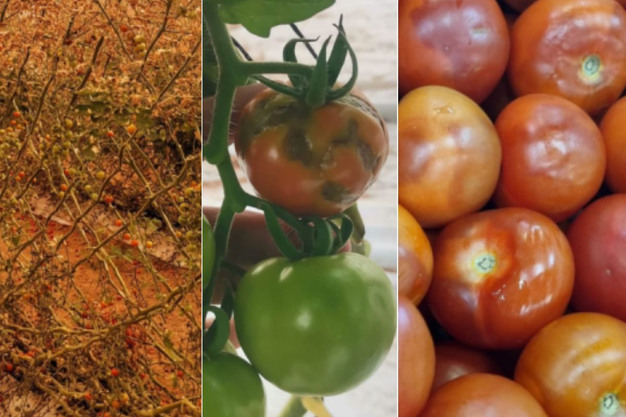At the end of the previous export tomato season in Morocco (2023/2024), growers in the Souss Massa region were experiencing serious losses due to Tuta absoluta. One grower described the episode as "the most severe since 2015", and estimated damage caused by the pest at 20% of volumes.
Behind the spread of the insect was a decision taken by many tomato growers in the region. To recall, in the preceding season (2022/2023), growers suffered the full brunt of ToBRFV damage, causing confusion and reflecting in planting decisions on many levels: The choice of variety, acreage, and planting date, but also the decision to prevent Tuta absoluta using biological control or namely the use of Nesi. One grower said at that time, "Moroccan farmers often believe that biological control contributes to the spread of ToBRFV because the insects used are mechanical vectors of the virus." The same grower assured that no scientific study supports this fear, but that it is nevertheless a common belief among growers.

For Benoît Vuillaume, Managing Director of Koppert Morocco, the correlation between the spread of Tuta absoluta and the non-use of Nesi demonstrates the latter's effectiveness. He explains, "At the beginning of last season, the main fear of tomato growers in Morocco was the ToBRFV virus. Fearing the virus, they decided to make little or no use of Nesi to fight Tuta. Despite the use of other methods such as sexual confusion or mass trapping, it became clear at the end of the season that this was not enough and that Tuta became a disaster for a large part of the farmers, forcing many of them to uproot the crop early. This proves something that we already knew at Koppert, and that is that there are scientific studies that confirm that the use of Nesi is essential to control the Tuta pest, as has already been amply demonstrated in other areas of the world with the same problem."
Were the growers who chose to bear the brunt of Tuta rather than ToBRFV, deemed more serious, right in their approach? Vuillaume responds, "The message we have given to farmers at the beginning of the season has been that the probability of virus transmission with Nesi (or other insects) is practically null, as confirmed by some scientific research. It has been scientifically proven that, with the right preventive measures, biological control of Tuta by Nesi is very effective."

The biological control solutions provider continues: "The main preventive measure we recommend to growers is that, in case of high Nesi populations on the farm and after severe pruning, they should leave the prunings to dry inside the greenhouse before removing them. In this way, when the plant material is removed from the greenhouse it is already dry and the Nesi is barely mobile and cannot travel to other healthy plants, thus minimizing any remote possibility of virus transmission."
Vuillaume concludes, "We can advise the use of Nesi and include the fact that seedling release is even more effective, which is not done in Morocco. The use of other control methods, such as entomopathogenic nematodes, can be an additional tool to be taken into account."
Many Moroccan growers have reported that Tuta absoluta has developed resistance to pesticides authorized in Europe. The European Union's recent ban on several active substances increases the pest's resistance, which could further complicate the situation this season. Integrated Pest Management, including biological control, remains in their view the most effective solution against Tuta, provided it can effectively go hand in hand with ToBRFV control.
For more information:
Benoît Vuillaume
Koppert Morocco
Tel +34950554464
Email: [email protected]
